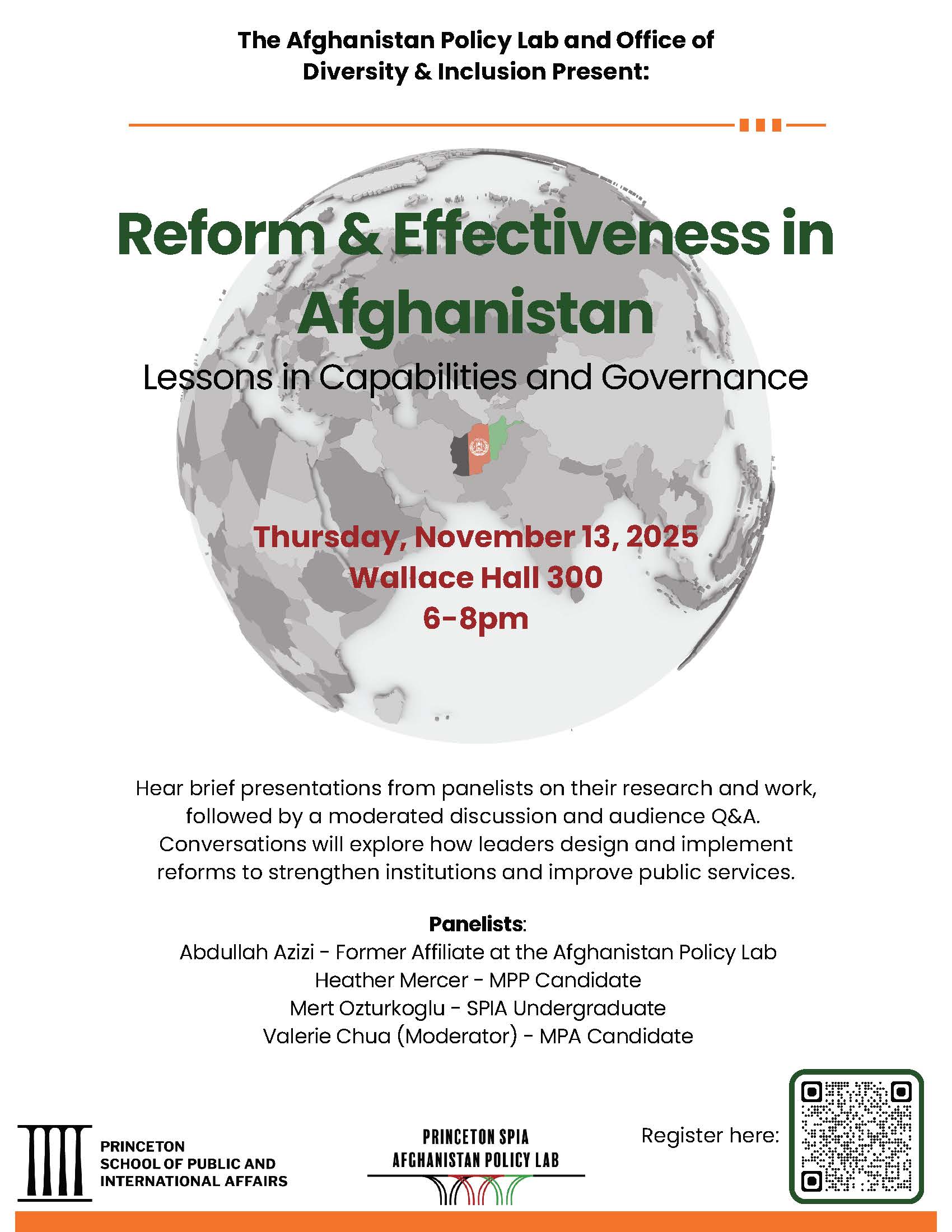
Reforms and good governance are essential pillars of a well-functioning society. In today’s discussion, our panelists will examine how leaders design and implement large-scale reforms to achieve functional institutions, foster economic development, and enhance service delivery. The panelists will also draw key lessons from case studies on why some reforms succeed and others fail.
They will discuss Afghanistan’s reform efforts in the period before the Taliban takeover of the country. Afghanistan’s failure to implement large-scale reforms to build functional institutions and improve service delivery reflects a broader pattern of ineffective development models and strategies.
Following the Taliban’s takeover in August 2021, Afghanistan’s system of governance underwent a fundamental shift. The democratic institutions created under the Bonn Agreement were replaced by a centralized rule grounded in strict interpretations of Sharia law. Women, minority groups, and independent media have been sidelined from nearly all areas of public life. This transition foregrounds the urgent need to rethink governance reforms through the lens of DEI.
Existing theoretical models and empirical studies provide narrowly scoped diagnostic tools and overly broad policy frameworks to address reform challenges within a highly fragmented society, underdeveloped state institutions, particularly at the local levels, and the absence of citizen-state relations based on accountability and service delivery.
Lessons from Afghanistan’s reform efforts revealed four guiding principles: (1) establishing high-level institutions to drive reform; (2) leveraging digitization and automation to reduce human discretion in government processes; (3) making ministries accountable to community development councils to improve service delivery; and (4) building sustainable state capabilities by developing and implementing endogenous solutions.
Objectives:
- To review and discuss the importance of governance, reforms, and institutional capabilities as the foundation for a viable state.
- To highlight various comparative cases of reform success and failure.
- To examine the key assumptions of a successful reform model.
Speakers
Mr. Azizi is a Ph.D candidate and lecturer at Rutgers University. He earned his M.A. in Global Affairs and Politics from Rutgers University as a Fulbright Scholar. He has worked with the United Nations Development Program (UNDP), contributing to democratic governance and state-building efforts in Afghanistan.
Heather is the founder and president of Global Hope, a nonprofit advancing freedom and human dignity in conflict zones. With 25 years of residential field experience in Afghanistan and Iraq, she has led initiatives focused on minority rights, gender equality, economic development, and protection for victims of gender-based violence for vulnerable populations.
Mert is an undergraduate at Princeton University, intending to major in international and public affairs. As a Turkish-American, he focuses his studies on the Middle East and the diplomatic relationships shaping the region. He also has experience with local-level policy work, including initiatives addressing food insecurity and DEI efforts.
Valerie is a public policy professional from Singapore with a background in strategic planning and government policy. She most recently served as a Strategic Planner in the Prime Minister’s Office, where she was involved in reforming governance processes and setting the strategic direction for the country.
Sponsorship of an event does not constitute institutional endorsement of external speakers or views presented.


